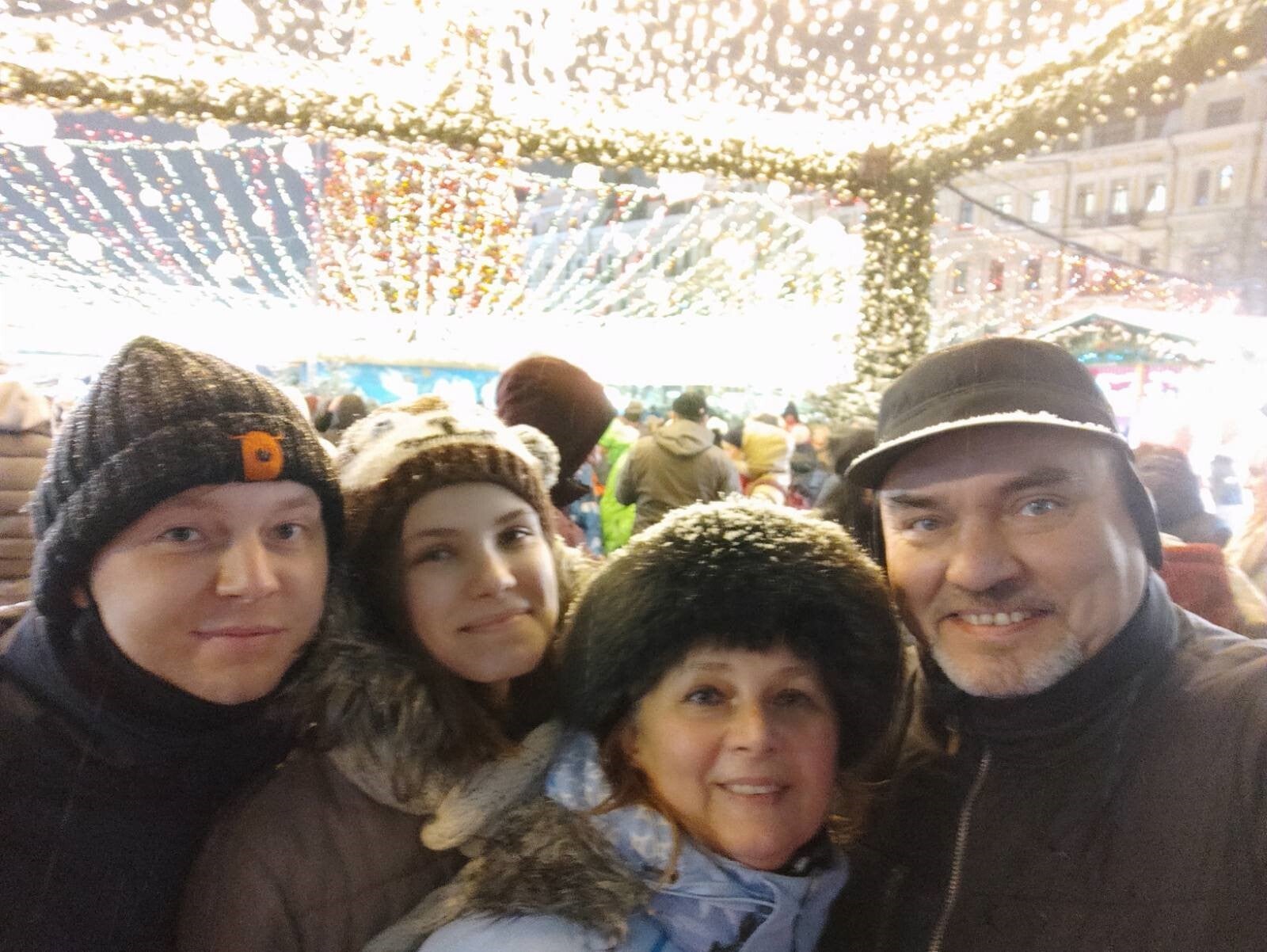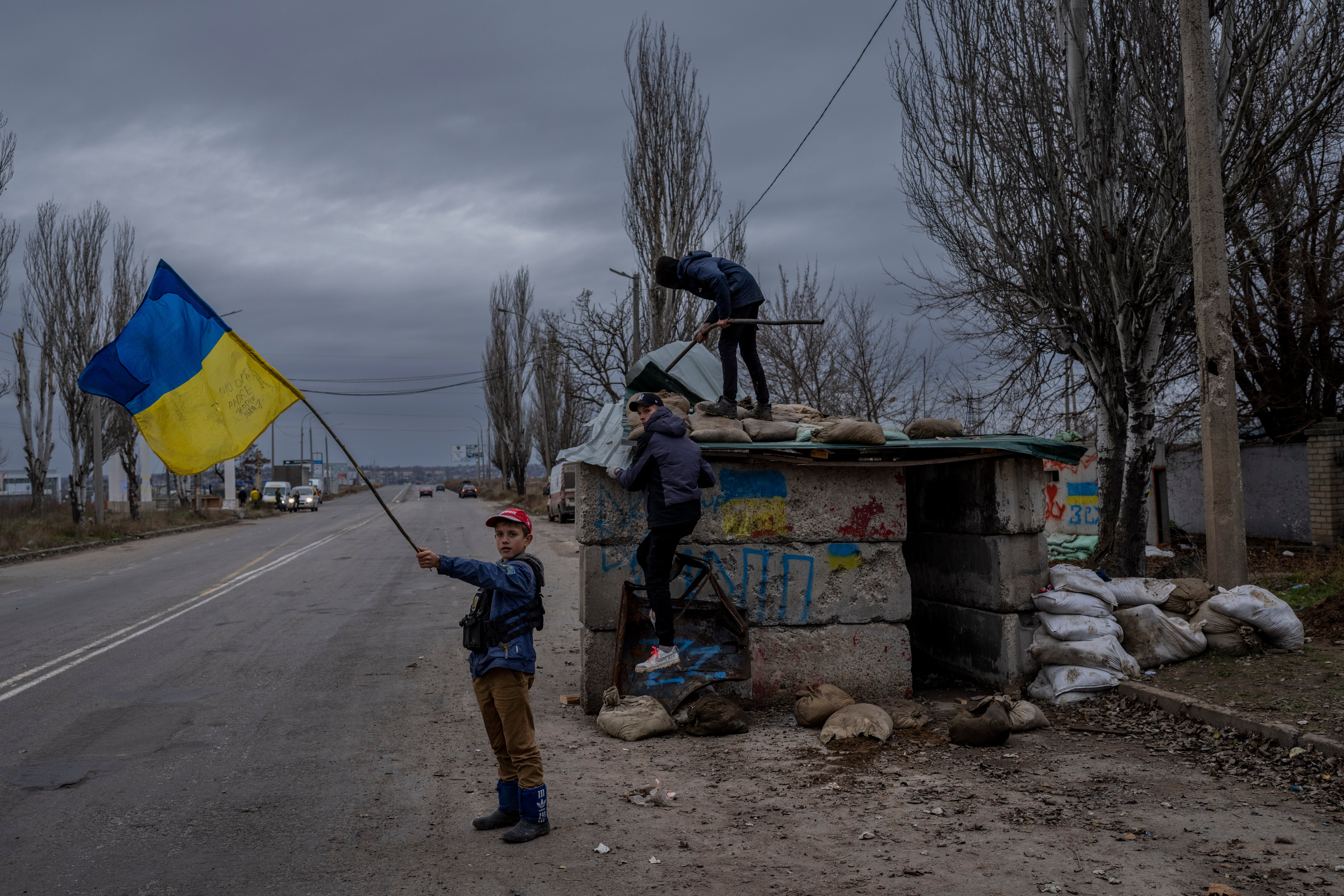Ukrainians struggling to bring family to UK because of government rules
Goverment schemes gave Ukrainians three-year visas rather than full refugee status

Ukrainians who have fled the war are struggling to bring loved ones to live with them in the UK because government schemes gave them fewer rights than other refugees.
A university lecturer’s mother and sister had to settle in Germany after he had to “give up” trying to bring them to Britain, while a working couple’s elderly parents ended up in Ireland after they were told they could not act as sponsors.
These are among numerous Ukrainian families separated by stringent rules stemming from a decision by ministers to give those fleeing the conflict temporary three-year visas rather than full refugee status.
Emmeline Skinner Cassidy, who runs the Families Together coalition, told The Independent that “at first glance” Ukrainians appeared to have an advantage over people fleeing other countries, with bespoke routes set up under intense public pressure at the start of the war.
“But at the same time, people who’ve arrived under Homes for Ukraine or the Ukraine family scheme aren’t eligible to go on to sponsor anyone themselves, and they also can’t access regular refugee family reunion because they haven’t been granted refugee status,” she explained.
“If they need to bring a family member to join them here in safety, they’re reliant on finding someone settled in the UK to sponsor their family member for them.”
Ms Skinner Cassidy voiced concern that more people would be affected as the war continues raging into its second year. The government has not told Ukrainians what will happen when their three-year visas run out, and those who want to settle in the UK are becoming anxious about their future.
People who are granted refugee status following successful asylum applications are granted indefinite leave to remain in Britain, and Ms Skinner Cassidy said that Ukrainians had been left without “access to some of the entitlements that come with being recognised as a refugee”.
Ukrainians who arrived after the start of the Russian invasion can bring relatives to the UK by finding new sponsors for them under the Homes for Ukraine scheme, but volunteers are believed to be dwindling as a wave of support at the start of the conflict subsides and the cost of living crisis bites.
Andrii Zharikov, a Ukrainian lecturer at the University of Portsmouth who has been in the UK for seven years, said he “gave up” trying to bring his mother and younger sister to join him, after they fled Ukraine as his father joined the army to fight the invasion.
He told The Independent that because he is on a work visa, he is not “eligible” to sponsor them under the government’s Ukraine family scheme, and that after months of trying, his loved ones settled in Germany.

“They cannot visit me here in the UK, since applying for a UK visitor visa with a refugee status elsewhere bears significant risks for refusal,” the senior law lecturer said, describing how he travels to see them roughly every three months.
Dr Zharikov believes his mother and sister get “much more support” in Germany than they would in Britain, which includes regular allowances for everyday expenses and a university scholarship for his sister.
The Independent is aware of other cases, including a couple who had secured jobs and school places for their children in the UK but were unable to bring their elderly parents to join them.
After the couple tried and failed to find a new sponsor, their parents went to Ireland instead because there were fewer restrictions on entry.
A lawyer volunteering for the Ukraine Advice Project, which offers pro bono immigration support to those seeking shelter in the UK, said that while the schemes had been an “essential lifeline” after the conflict broke out, the future is unclear.
Alex Sciannaca, a partner at law firm Hogan Lovells, added: “The visas granted under the scheme currently only last for three years. It is as yet unclear whether the government will continue to allow Ukrainians who have settled in the UK to remain in the country beyond that time.
“It is also unclear for how long sponsors who have welcomed Ukrainians into their homes will continue to receive funding and government support, which goes only part way to covering the cost of their charitable support.

“There is an urgent need to provide certainty and long-term solutions to these issues so that Ukrainians in this country can continue rebuilding their lives in safety.”
The Refugee Council said that the issue points to a wider problem with the government’s creation of bespoke schemes, like those for Ukraine and Afghanistan, outside of its normal asylum processes.
It warned that the schemes leave refugees who deserve equal treatment and protection with “very different rights and entitlements”, amid record backlogs for standard asylum applications.
Meanwhile, informal Facebook groups set up to match Ukrainians with British families are still being swamped with requests.
“Could someone help me with a sponsorship visa for my cousin?” writes one Ukrainian woman who lives in Brighton. “He can help around the house, make repairs, walk the dogs. He wants to find a job. Cheerful, friendly and very kind person. Please help.”
The Home Office confirmed that Ukrainians are not able to become family scheme sponsors unless they have settled immigration status, but said that those who arrived on Homes for Ukraine visas can sponsor relatives if they meet the requirements.
Those include a minimum standard of accommodation, with a set number of bedrooms per person, but an official survey showed that the majority of Ukrainians who arrived under the scheme are still living with sponsors themselves.
A government spokesperson said: “In response to Putin’s barbaric invasion of Ukraine, we launched one of the fastest and biggest visa schemes in UK history.
“163,500 Ukrainians have now arrived safely in the UK through our Ukraine visa schemes. We are processing visas as quickly as they come in – enabling thousands more Ukrainians to come through our uncapped routes.”






Join our commenting forum
Join thought-provoking conversations, follow other Independent readers and see their replies
Comments